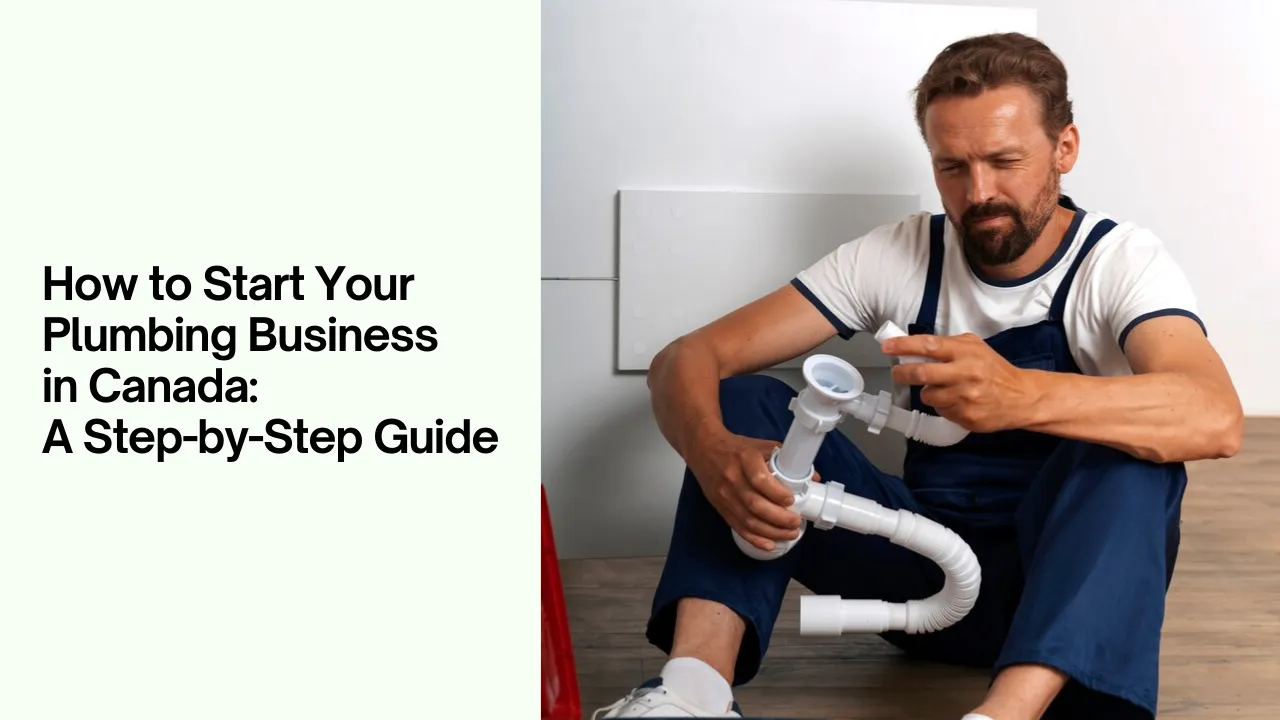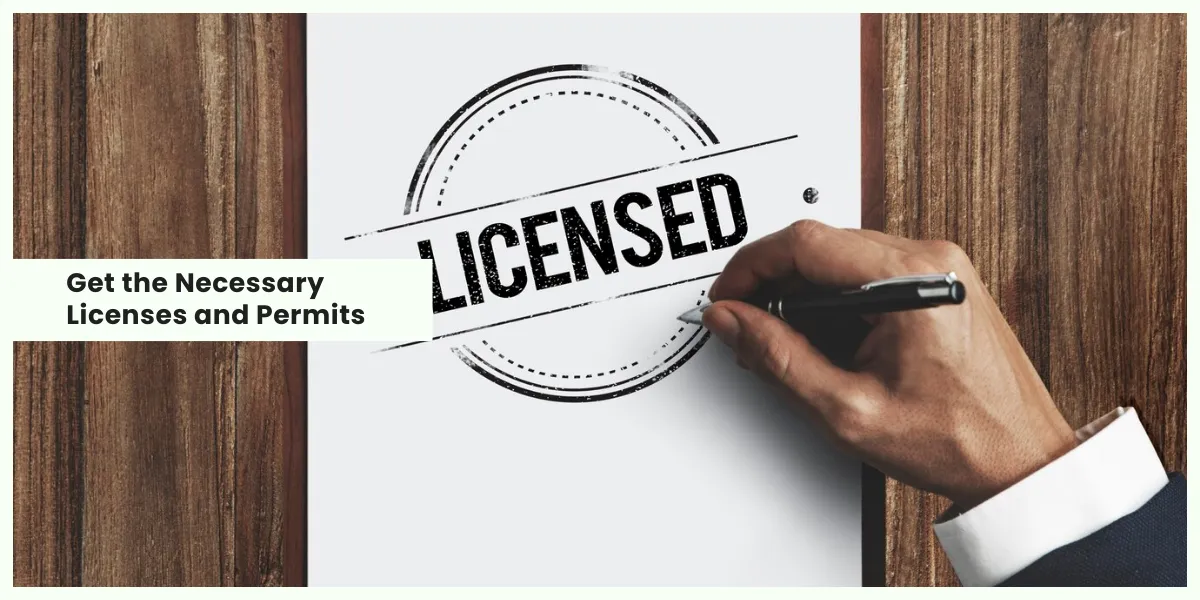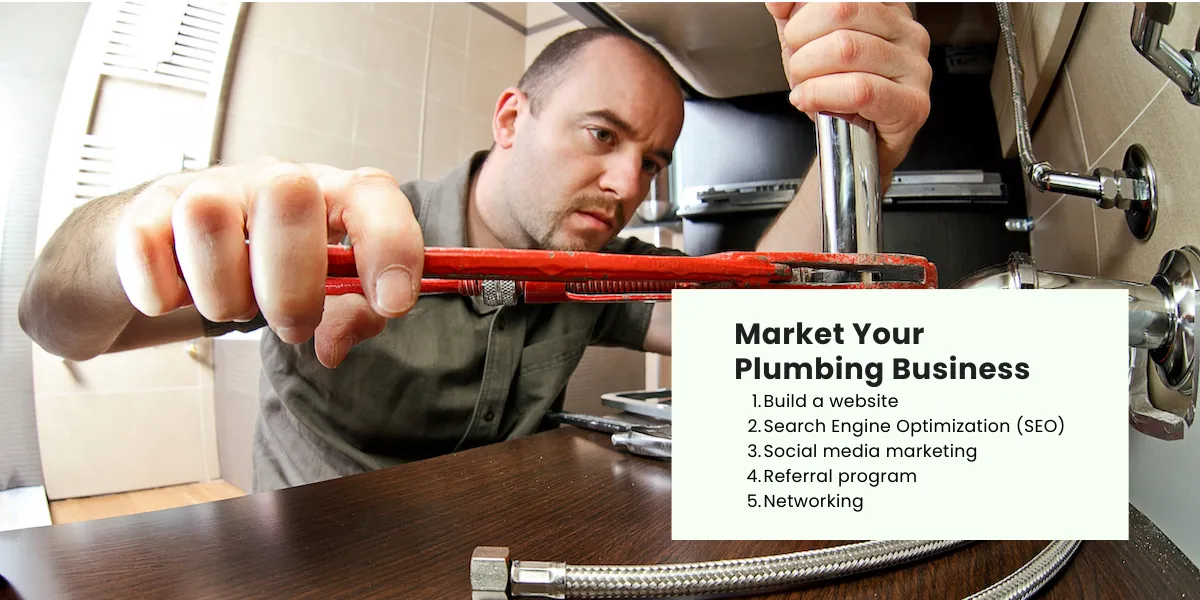Blog
How to Start Your Plumbing Business in Canada: A Step-by-Step Guide

If you’ve ever thought about starting your own plumbing business in Canada, you’re not alone. The demand for skilled plumbers continues to grow, and owning a plumbing business can be a lucrative and rewarding career path. Whether you’re already an experienced plumber or just starting out, this guide will walk you through the essential steps on how to start your plumbing business in Canada.
From legal requirements to marketing your services, there’s a lot to consider. But don’t worry, we’ve got you covered. Let’s break it down.
Assess Your Plumbing Skills and Experience

Before you dive into setting up a plumbing business, you must be sure that you have the right skills. Plumbing isn’t a simple trade, and there’s a lot of responsibility involved. You’ll need to be confident in your ability to manage jobs like:
- Installations (pipes, faucets, water heaters)
- Repairs (leaks, clogs, damaged pipes)
- Maintenance (regular checks and troubleshooting)
In Canada, plumbing businesses require licensed plumbers to operate legally. If you’re not already a certified plumber, you’ll need to complete an apprenticeship and obtain the appropriate plumbing license in your province or territory.
- Sole trader plumber: You can start as a sole trader plumber, working for yourself and handling small plumbing jobs initially. However, a proper license and certifications are essential for all plumbing professionals.
Create a Solid Business Plan

One of the first steps when opening a plumbing business is creating a business plan. This document will help you outline your goals, understand your target market, and secure funding if needed. Your plan should include:
- Services offered: Will you focus on residential plumbing, commercial plumbing, or both? Will you offer specialized services like corporate plumbing services or emergency repairs?
- Target market: Identify your ideal customers. Are you focusing on homeowners, construction companies, or property managers?
- Pricing strategy: Research local rates for plumbing services and determine competitive pricing.
- Marketing: Plan how you’ll attract customers—through online advertising, word of mouth, or partnerships with real estate agents or contractors.
- Financial projections: Estimate startup costs, projected income, and expenses for the first few years.
A solid business plan will help you stay focused and guide you as you navigate the small plumbing business world.
Register Your Business

In Canada, you must register your plumbing business with the Canada Revenue Agency (CRA) and your local provincial government. There are two common ways to structure your business:
- Sole proprietorship: As a sole trader plumber, you operate under your own name, making decisions and handling taxes yourself. This is a great option if you’re just starting out and want to keep things simple.
- Incorporation: If you plan to expand, hire employees, or seek corporate clients, you might consider incorporating your business. This option comes with added benefits like limited liability and tax advantages.
Once you’ve decided on your business structure, register with the CRA to get a Business Number (BN), which you’ll use for taxes.
Get the Necessary Licenses and Permits

In Canada, plumbing businesses must comply with local building codes, licensing, and safety regulations. Each province or territory has its own requirements, so make sure to check with your local regulatory body.
For example:
- In Ontario, you need to complete the Plumbing Trade Certification Program and pass an exam to obtain your plumber’s license.
- In British Columbia, plumbers must register with the Industry Training Authority (ITA) and complete the required apprenticeship and certification process.
Additionally, depending on your services, you may need additional permits, such as:
- Business license from your municipality
- Contractor’s license (for larger jobs)
- Insurance: Liability insurance to protect yourself in case of accidents, injuries, or damages during plumbing jobs.
Without the necessary licenses and permits, you won’t be able to legally offer plumbing services.
Get the Right Tools and Equipment
Starting a small plumbing business means you’ll need to have the proper tools and equipment to get the job done. You can’t just rely on basic hand tools—you’ll need professional-grade gear to handle a variety of plumbing tasks.
Here’s a list of essential tools for any plumber:
- Pipe wrenches, plungers, and pipe cutters
- Leak detection equipment
- Water pump and pressure gauges
- Drain cleaning machines
- Safety equipment (gloves, goggles, knee pads)
When starting out, you can buy these tools gradually, depending on the types of jobs you plan to take on. However, make sure your tools are always in good condition to ensure safety and efficiency on the job.
Obtain Insurance

Insurance is a critical component of protecting your business. There are several types of insurance you’ll need, including:
- General liability insurance: This covers damages or injuries that may occur on the job site.
- Worker’s compensation: If you hire employees, you’ll need worker’s compensation insurance to cover work-related injuries.
- Professional liability insurance: This covers mistakes or oversights in your work that could result in damages.
Insurance ensures that you’re covered if anything goes wrong during a project and helps you build trust with potential clients.
Market Your Plumbing Business

To attract customers, you’ll need a strong marketing strategy. For a small plumbing business, effective marketing doesn’t have to cost a lot of money. Start with these strategies:
- Build a website: Have an online presence where potential clients can learn about your services, pricing, and contact information.
- Search Engine Optimization (SEO): Optimize your website to rank higher on Google when people search for plumbing services in your area.
- Social media marketing: Promote your business on platforms like Facebook, Instagram, and LinkedIn. Share plumbing tips, before-and-after photos, and special promotions.
- Referral program: Offer incentives for customers who refer your services to others. Word-of-mouth can be one of the most effective marketing tools for a new business.
- Networking: Join local business associations or offer corporate plumbing services to businesses in your area. Building relationships with real estate agents, contractors, and property managers can lead to a steady stream of business.
Hire Employees or Contractors

As your plumbing business grows, you might need to hire additional staff to help with larger projects or handle more jobs. You can start by hiring a plumbing apprentice or another licensed plumber to join your team.
If you prefer not to hire full-time employees, you could also contract out work to other plumbing professionals as needed. This approach allows you to scale your business without committing to full-time staff.
Focus on Customer Service
Great customer service is key to building a successful plumbing business. Always be professional, reliable, and honest with your clients. Respond quickly to inquiries, show up on time, and ensure the work is done right the first time.
Word-of-mouth referrals are incredibly valuable, so always focus on delivering excellent service to encourage repeat business and positive reviews.
Scale Your Plumbing Business

Once your plumbing business is established and running smoothly, you can look for ways to grow. You might expand by:
- Offering new services (e.g., emergency plumbing or pipe insulation).
- Targeting larger clients, such as corporate plumbing services for offices, factories, or other commercial properties.
- Expanding to other locations in Canada or hiring more employees to serve a larger customer base.
Scaling a plumbing business takes time, but with a solid foundation, you can steadily increase your revenue and reputation.
How ServiceHive Can Help You Start Your Plumbing Business

Starting your plumbing business? ServiceHive is here to help! By listing your business on the platform, you’ll connect with local customers who need trusted professionals. Whether you’re a sole trader plumber or aiming to offer corporate plumbing services, ServiceHive makes it easy to showcase your skills, manage bookings, and grow your client base. Get noticed, gain trust, and build your business faster with ServiceHive!
Final Thoughts: The Path to Plumbing Success in Canada
Starting your own plumbing business in Canada can be both a challenging and rewarding journey. From setting up a plumbing business to expanding your client base, there are many steps involved. By planning carefully, obtaining the necessary licenses, and focusing on great customer service, you can build a small plumbing business that’s successful and sustainable.
Remember, it all starts with the right mindset, skills, and dedication. Whether you’re working as a sole trader plumber or planning to offer corporate plumbing services, the key to success is providing high-quality work and developing long-term relationships with your customers.
Good luck, and may your plumbing business thrive in the competitive Canadian market!
Key Takeaways:
- Starting a plumbing business in Canada requires a solid plan, licensing, and the right tools.
- Decide whether to be a sole trader plumber or incorporate your business based on your long-term goals.
- Customer service and marketing are key factors in building a successful plumbing business.
- Always ensure your business is insured and compliant with local regulations to avoid legal issues.

We absolutely love your blog and find many of your post’s to be exactly what I’m looking for.
Does one offer guest writers to write content in your case?
I wouldn’t mind creating a post or elaborating on a lot of the subjects you write about here.
Again, awesome web site!
Also visit my web page: secret how to hide text messages on iphone
Thanks designed for sharing such a good thinking,
post is nice, thats why i have read it completely
Take a look at my web-site :: how to send an invisible text
Your way of explaining all in this piece of writing is actually pleasant, all be capable of simply
be aware of it, Thanks a lot https://www.magentaphoto.com/preparation-a-la-seance/
Your mode of explaining the whole thing in this piece of writing is in fact good,
all be capable of simply know it, Thanks a lot https://chaussuressemy.com/boutique/